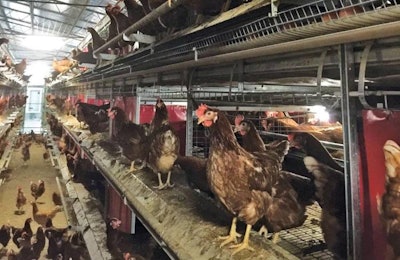
It is being claimed that demand for cage-free eggs is increasing. However, with the exception of people carrying a dozen cage-free eggs in the supermarket, I have never heard of anyone asking for cage-free eggs. Think about it. Have your ever heard something like – “Can I have a couple of cage-free, over-easy eggs with bacon from free-range pigs?” Have you? On the other hand, yes, I have heard people asking for gluten-free bread or pasta because of being celiac, or non-dairy milk products for lactose intolerant people.
I am not sure if cage-free egg demand is increasing “all” over the world ─ in the EU, the U.S. and Asia, perhaps. However, in Latin America it is hardly mentioned. Not to say Africa. Why? It could be that their inhabitants ─ mostly poor countries and some middle-income countries ─ are not willing and/or ready to spend more money.
What it’s actually increasing is the lack of access to affordable food and good protein. The fact that this frenzy started in countries such as the Netherlands, the Czech Republic and Slovakia, with 33.7 and 3 million hens, respectively, does not mean that everybody is looking for these eggs.
Consumers are always positioned as those requesting this type of eggs, but as funny as it could be, I only see names of supermarket, restaurant and hotel chains. Where is the real consumer? Is my mother-in-law included in these requests?
According to the WATT Top Companies database, in Latin America, 56% out of the 517.6 million laying hens are raised in Mexico and Brazil. That is 291.6 million hens (the Netherlands, the Czech Republic and Slovakia have altogether 43 million). Of this total in the region, just a negligible portion complies with the cage-free standards in order to be called cage-free. It is even said that many of those eggs are of doubtful origin. The rest is just traditional production.
So far, producers in the region ─ through the Latin American Poultry Producers Association (ALA) ─ have consistently opposed to changing the regulations shifting to cage-free eggs. There are many reasons to oppose to it, starting with the fact that there is no difference in the product and that hens are well treated, because otherwise they would not be able to produce. Plus, the enormous investment it represents.
I don't want to be disrespectful, but the fact that a few countries with much smaller amounts of hens are changing their systems, does that mean that the whole world has to change?
What do you think?
















